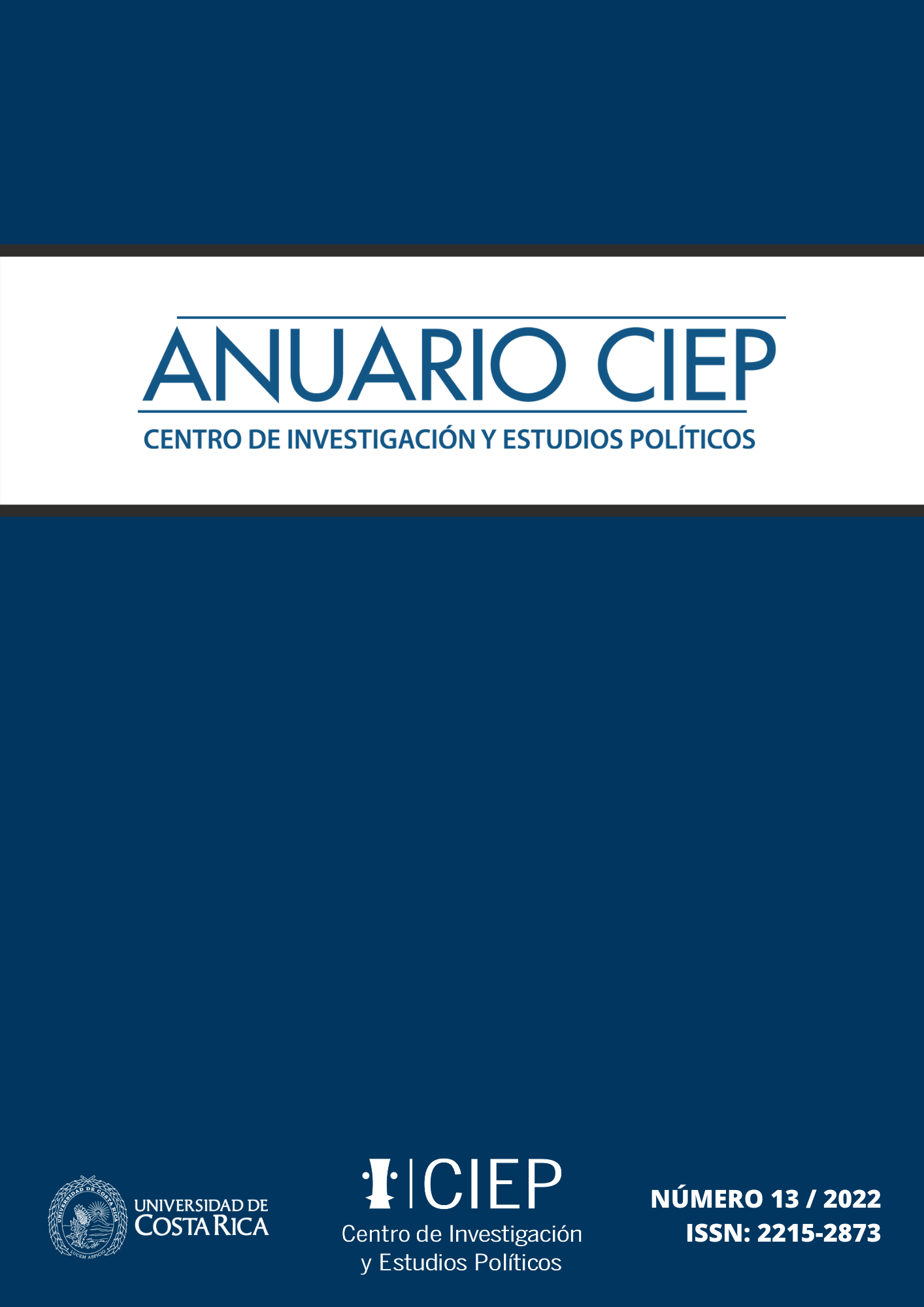Abstract
Linguistic evaluation is used to construct the speaker's attitudes and feelings, and its study allows us to discern the relations of cooperation, conflict and negotiation that contribute to the construction of opinions. In the 2018 electoral context, this can offer a new perspective to understand the profile of Costa Rican citizens, their beliefs, political positions, and motivations. This work analyzes citizen attitudinal representations about different political actors involved in the 2018 Elections based on interviews conducted throughout the country. Men and women from different geographical areas, ages, educational levels, and political affiliations were included in the sample. Using the linguistic categories of the attitude system of the appraisal theory, we analyzed the participants' evaluative utterances about different political actors, including first and second round candidates, Fabricio Alvarado, Carlos Alvarado, citizens, candidates' supporters, the political class, the government, and political participation. For the most part, attitudinal representations identified were overwhelmingly negative: voters for the Citizens’ Action Party (PAC) were less negative and more frequently included positive aspects, while abstentionists were abundantly negative and used dehumanizing resources. It stands out that, despite the highly polarizing political scenario, the dissatisfaction and general discomfort towards the political actors in the 2018 Elections is shared by all. Once again, Costa Ricans found themselves in a scenario where they did not vote for someone, but in spite of someone.
##plugins.facebook.comentarios##

This work is licensed under a Creative Commons Attribution-NonCommercial-NoDerivatives 4.0 International License.
Copyright (c) 2022 Marco Arroyo Mata, Gabriela Cruz Volio y Adrian Vergara Heidke

